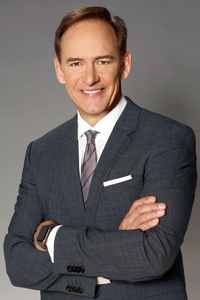US interest in Canadian real estate rises to levels not seen since Trump's first presidency

From potential new tariffs to the prospect of further turbulence in cross-border relations, the possible impact on Canada of Donald Trump’s return to the White House remains to be seen. But as the world gears up for what’s sure to be another unpredictable and bumpy four years ahead, a noted trend from Trump’s first presidency has re-emerged in recent months: namely, a spike in the number of Americans apparently sizing up a move to Canada.
remains to be seen. But as the world gears up for what’s sure to be another unpredictable and bumpy four years ahead, a noted trend from Trump’s first presidency has re-emerged in recent months: namely, a spike in the number of Americans apparently sizing up a move to Canada.
As Trump closed in on the Republican presidential nomination over the summer, real estate giant Royal LePage noted that US traffic to its Canadian website surged, spiking by 104% in the week of June 16 and seeing its highest monthly traffic in July, when Trump officially became the GOP nominee.
Phil Soper (pictured top), Royal LePage’s president and chief executive officer, told Canadian Mortgage Professional the big increase in US visits to its site mirrored a similar uptick during Trump’s first presidency, with the fact that Americans are looking at urban properties rather than recreational ones seeming to suggest they’re mulling a permanent move.
“We’ve seen two abnormally high spikes if we look at elections over the last 30 years since we started looking at this, and they’ve both been associated with Donald Trump presidencies,” Soper said.
Most of the interest from the US originates from regions that tend to skew Democratic, Soper said – states that “look something like Canada” from a cultural standpoint. Still, a caveat: the searches appear to be mostly speculative, with little evidence that a majority of those considering buying a Canadian home actually follow through on their plans.
At each step of the Canadian homebuying process, Soper said, “there are fewer people that take the leap and dig in more deeply,” when it comes to Americans weighing up a move.
Opportunities arise from election fallout
The number of Americans immigrating to Canada remains relatively small compared to other more prominent cohorts of new Canadians, and that seems unlikely to change even as many grapple with the reality of a second Trump presidency.
The dollar rose to the strongest level in a year as Donald Trump won the race for the US presidency, triggering a sharp rise in Treasury yields on speculation his policies would keep US interest rates elevated.https://t.co/utVs5xXvQw
— Mortgage Professional America Magazine (@MPAMagazineUS) November 7, 2024
Still, that’s not to say the mortgage community shouldn’t be attentive to the prospect of Americans choosing to move north of the border. “Almost all of the transactions that occur in Canada are either for new Canadians, people who are relocating permanently or Canadians themselves changing their living arrangements,” Soper said. “[For] Americans, just like any other region of the world – when there’s a surge in interest, we should be aware.
“If this is something you really want to focus on as a mortgage professional or a real estate broker, you should be aware of the challenges they face and be able to provide some advice and counsel on next steps. If that’s something you want to focus on, even a simple amount of research will help considerably in terms of being able to provide that kind of advice so either pass them off to someone who is truly interested and invested in learning about the process, or get up to speed yourself.”
Is the glass half-empty or half-full for Canada’s economy?
As for the wider impact of another Trump presidency on Canada’s economy? That remains unclear, although Soper said there’s little to suggest that the “general trend globally” of a drop in the cost of borrowing will reverse immediately.
The US stock market surged as Trump’s victory came into view last week, although the president-elect has also been candid about plans to introduce new tariffs and reimpose an aggressive “America First” economic approach and hardline immigration policies. “If you think a Donald Trump presidency is going to be good for the Canadian economy, that could be helpful,” Soper said.
“If you think that tariffs and protectionism are going to make things more challenging for the Canadian economy, that could act as a drag on housing. The bottom line is, from my perspective, no country – including the United States – can avoid global fiscal trends and globally, the cost of borrowing is dropping rather than rising.”
Canada’s independent fiscal policy, meanwhile, “will be a bigger driver of mortgage borrowing costs through 2025,” Soper said, “than a new Trump presidency.”
Make sure to get all the latest news to your inbox on Canada’s mortgage and housing markets by signing up for our free daily newsletter here.



